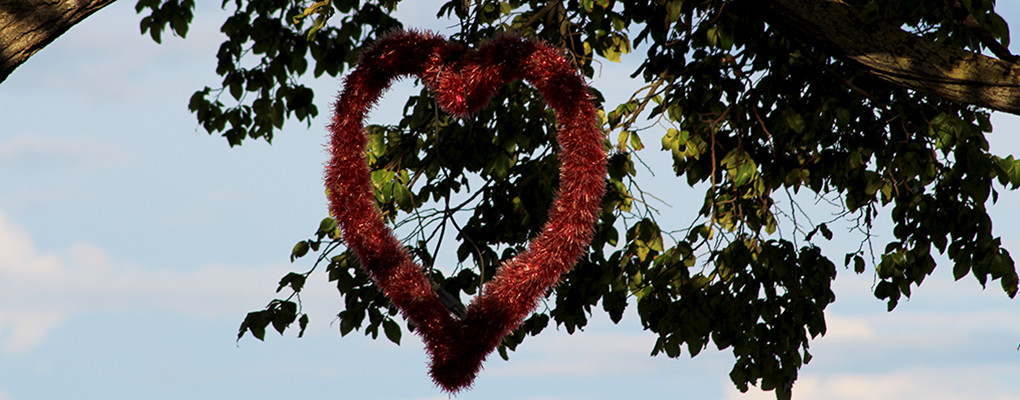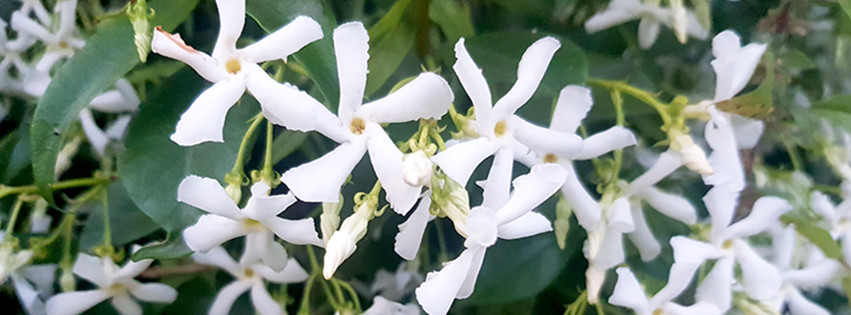What is Trauma Sensitive Equine Assisted Mindfulness (TS-EAM)?
- Hits: 10549 10549
TS-EAM is designed to take participants, step by step, through how to create a solid and individualized base for mindfulness & meditation practices. It has experiential learning, trauma sensitive mindfulness (TSM) and creative mindfulness and meditations as its building blocks and incorporates what we know about the benefits of bringing in elements of nature and animals (in this case horses) into relaxing, grounding, resource creating, supportive, reflective, and therapeutic processes.
We offer a 10-step TS-EAM program* where each step builds on and incorporate knowledge from the previous steps.
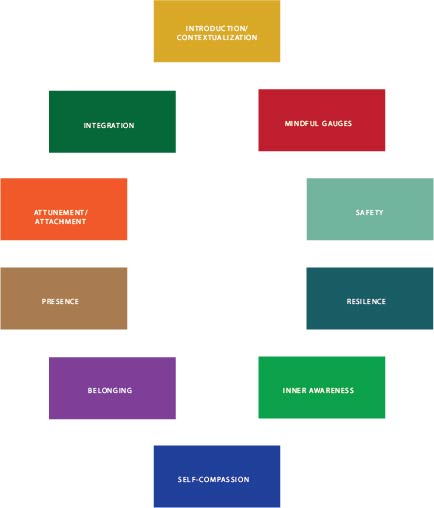 Introduction
Introduction- Mindful Gauges
- Safety
- Resilience
- Inner Awareness
- Self-Compassion
- Belonging
- Presence
- Mindful Attunement/Attachment
- Integration
The horse(s)
The horse(s) is participating in TS-EAM on its own terms. They are not there as anything else, but themselves (Each one of them, an individual horse). They represent themselves and are free to express themselves. Since horses give instant feedback and respond only to what is going on in the current situation and moment (even if they would be triggered by something from their own past), they are valuable team members in any setting where we practice being more present with ourselves in the “now”. We either work with lose horses in their pasture, paddock or stable or with horses in halters, taking walks. All work is un-mounted. The welfare and wellbeing of the horses is paramount to the outcome of TS-EAM for you as a participant, as well as of course, to their own welfare and wellbeing.
Teamwork
TS-EAM is in its essence a teamwork. Everybody present is part of the team. That includes the participants as well as the horses. On the human facilitation team there is always at least one trauma sensitive trained mindfulness facilitator and at least one equine professional.
Experiential learning
TS-EAM is experiential in its nature. Instead of mainly talking about and teaching mindfulness and mediation, and guiding participants in mindfulness and mediation practices, the invitation to the participants is to by being with – and doing – finding their own tailormade version of practicing mindfulness and mediation. As facilitators of this – we bring in our knowledge, skillsets, tools, and own experiences with all the ingredients, to support the participants in finding what they need, so they can start to build their own toolbox. Experiential learning is part of the integration aspect of this way of doing mindfulness and meditations. It is also part of each participant owning their own journey, process, knowledge, and learning.
Nature and outdoor based interventions
In general, all people in the western culture spend too much time indoors. Most have a job, study, or live in settings that does not contain or incorporate many elements of nature, on a daily, or even weekly, basis. To be in nature and outdoors is for many an active choice that needs to be done. Few activities in most western people’s lives needs to take place outdoors in nature. Westerns can, if they want to, in principle live out most of their lives indoors and away from natural environments. This goes against everything we know about what is good for people’s health and wellbeing. They layers being outdoors and in nature adds to any activity is rich and diverse. In TS-EAM participants are invited to explore and incorporate the human need to be outdoors and in nature, in a way that works for them and the situation the life situation they find themselves in for the moment.
They are also invited to connect the outdoors and nature to the goal of being and doing in a more mindful and meditative way. The outdoors and nature lend itself beautifully to strengthen practices of being present with oneself and whatever is going on in one’s life, but also offers plenty of opportunities to relaxation and rest.
Movement
What is true for westerners on being outdoors and in nature, is also true for movement. In general people move less and less. Many work, study without moving much and relax by being still. We are a very sedentary culture. Yet we are all aware of the benefit of moving more. TS-EAM invites participants to explore how they can incorporate more movement into their lives, and what kind of movement that works for them. The journey to start to move more is an invitation of its own to become more body aware and more embodied. In TS-EAM there is always the invitation to gauge whether someone needs more of the being – or more of the doing. This applies to movement as well, when we move more, we also need to figure out what rest and relaxation is and how it benefits us.
Movement is also intrinsically connected to cognition and psychological mechanisms. By moving/doing we learn in ways not accessible to us by thinking and talking (in the usual sense).
So for our human cognition and psychology and our cognitive and psychological capacities, we know that moving more is connected to a more agile mind. For or human emotions, we know that moving more helps with emotional regulation and wellbeing. For our human bodies, it is evident how moving helps us feel and do better physically.
One Health – Welfare and Ethics
Our fundamental conviction in Live the Change is that one being’s health cannot be improved on another one’s expense. Therefore, we have adopted the One Health Paradigm (https://www.onehealthcommission.org/) . From a welfare perspective the welfare for the humans and the horses, or other beings, involved in our programs, is of utmost importance. Each individual deserves both species specific welfare, as well as individually adapted welfare. Even if this reason is quite enough to always hold high welfare standards, we also firmly believe that the welfare or all involved will impact the outcome of your intervention or activity, no matter what the goal of it is.
Summarizing
TS-EAM draws from the benefit of many different interventions and practices as well as from an equal value driven welfare concept. Each of these components are powerful and important on their own – all of them with the potential to leading to better understanding of self and others, better emotional, cognitive, social, and physical health, better self-regulation skills, better connection with self and others, better coping strategies, better reliance on self and increased ability to accept one’s life, make choices and decisions and voice needs and desires, ask for help, and give help oneself. Together, they create a wonderful opportunity for sustainable growth and learning.
Contact me at This email address is being protected from spambots. You need JavaScript enabled to view it. for inquiries about our TS-EAM services and educations.
* Our TS-EAM program and its steps are based on and expanded from David Treleaven's TSM (Trauma Sensitive Mindfulness) program.
Trauma Sensitive Equine Assisted Mindfulness (TS-EAM) - Workshops
- Hits: 16057 16057
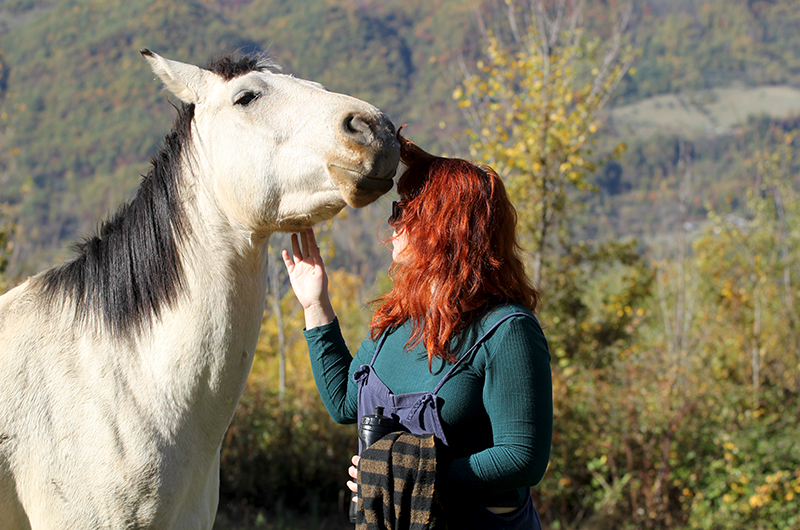
Our TS-EAM Weekend Workshop is for you who want to work with yourself and explore and learn about how you function, what your stress and/or trauma responses look like and how you can become better at helping yourself to greater inner awareness being able to make yourself feel more safe, resilient, self-compassionate, present and in better attunement with ourselves and others.
This workshop is designed to take you, through a process, where you step by step create a solid and individualized base for your mindfulness & meditation practices. TS-EAM incorporates experiential learning, trauma sensitive mindfulness (TSM), creative mindfulness and meditations, and nature based and animal assisted learning and mindfulness to support you in a relaxing, grounding, resource creating, emotionally supportive, reflective, and therapeutic processes. You are introduced to how you both can be with yourself and work with yourself to, without overwhelm, be with your stress and trauma responses with better and greater agility and flexibility.
These are the steps we move through during a 2-day workshop. There are shorter psycho-educational introductions to each theme, but the main work, we do with the horses, in nature.
This workshop is for any adult, either you come to enhance your own wellbeing and understanding of yourself, or how you perhaps can incorporate some of this way of working into your own services of equine assisted interventions.
TS-EAM Workshops 2025-2026
Since 2020 I have so far offered TS-EAM workshops in Sweden, Finland, Norway, UK, Polen, Latvia, Hungary, Italy and Germany. If you want to host a TS-EAM workshop, contact me at This email address is being protected from spambots. You need JavaScript enabled to view it.
Workshop Program
The first day we start with Introduction and Contextualization. Then we work with Mindful Gauges, Safety and Resilience, Inner Awareness, Self-Compassion and Belonging. The second day we work with Presence and Attunement/Attachment and lastly with Integration and Bridging. Not all of you will do all of the steps, or focus equally much on each step, this is part of our trauma sensitive and individualized approach. You will work in our own pace and decide for yourself what works for you.
Setting and Preparations
We work mostly outdoors, prepare with proper clothing, and bring what you need to take care of yourself through the weekend (water bottles, sunscreen, sun hat, wellies, sunglasses, hat, gloves, extra snacks, paper and pen – whatever you need to be comfortable and be able to remember what we do).
Included
The program itself, lunch and morning and afternoon snacks with tea and coffee. Access to nature and the presence of horses. Skilled facilitators. An introductory webinar on TS-EAM.
Not included
Travel and accommodation, any other meals than the ones mentioned above.
Facilitators
I am the main facilitator, but with larger groups, I work with different, but always very skilled facilitators in each country and location.
Price
Price is depending on country and other variables like facility and group size. Contact me for a discussion and quote (in average the price is 250 Euro/day).
If you want to host a TS-EAM workshop, contact me at This email address is being protected from spambots. You need JavaScript enabled to view it.
Trauma Sensitive Equine Assisted Mindfulness (TS-EAM)
- Hits: 6188 6188
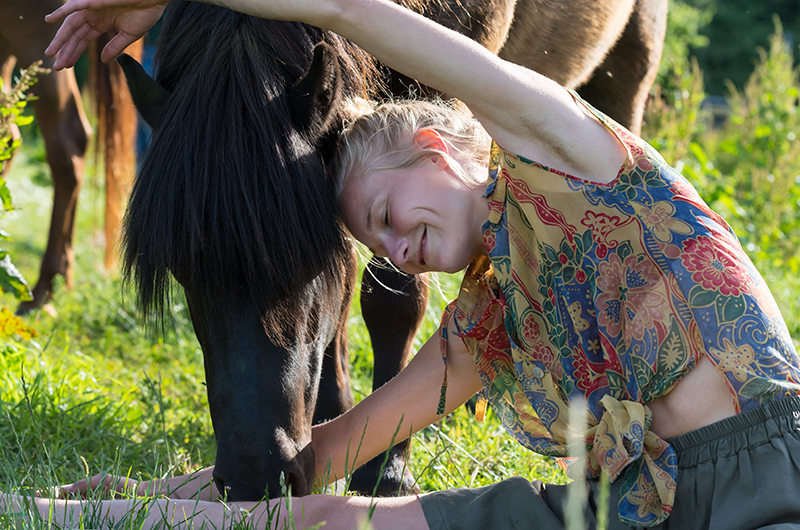 Trauma Sensitive Equine Assisted Mindfulness (TS-EAM) combines concepts from mindfulness and mediation practices with equine assisted experiential learning. It is nature-based and movement oriented, and a trauma sensitive and informed way of working.All our services in MiMer are built on teamwork and welfare for everyone involved, both humans and horses.
Trauma Sensitive Equine Assisted Mindfulness (TS-EAM) combines concepts from mindfulness and mediation practices with equine assisted experiential learning. It is nature-based and movement oriented, and a trauma sensitive and informed way of working.All our services in MiMer are built on teamwork and welfare for everyone involved, both humans and horses.
What is mindfulness and how can it help you?
Mindfulness is as much a practice, an experience, a mindset/approach to life and a state of mind. To be mindful is to actively choose to be consciously present and compassionate with yourself and others. It means that you shift your focus away from the things you cannot influence to what you can influence, that is – yourself. Being mindful is a way to redirect your energy, consciously choosing where you want to put it. This is the practice.
By influencing yourself – you have the pathway to influence your environment, including other beings. By being more and more fully yourself, you become more accessible for others as well, you become easier to understand. By learning to influence yourself, you experience what mindfulness can do for you and how your practice of mindfulness can help you in your relationships (with yourself and others) and in life. This is the experience.
When you practice and experience mindfulness – you will longer and longer be able to stay in a mindful state. It becomes a way of being. It becomes your mindset and how you approach life.
Mindfulness is in this way a philosophical, ethical, and even a political choice. It is taking responsibility for how you are and how you show up in the world.
You cannot change everything with the world that you think needs to change, especially not alone. Yet, you can choose how you want to relate to what is happening to you and around you. By making these active choices, you do have an impact on the world. How big that world is for you – only you know and decide.
Living in mindfulness can be remarkably simple, and extremely difficult at the same time.
It requires that you pay attention to and stay aware of yourself and your environment – in a relaxed, focused, engaged, accepting, non-judgmental, compassionate, and regulated way.
As everything else we want to be good at, we need to understand the practice, learn the skills, train, and reflect on what we do and how we are (giving feedback to ourselves).
Equine Assisted Mindfulness (EAM)
Equine Assisted Mindfulness means we combine mindfulness activities (sessions, practice, trainings, workshops, retreats etc.) with equine assisted learning (EAL). The EAL is there to support your growth as a mindfulness practitioner (or facilitator), to find your own way of doing mindfulness (and perhaps facilitating mindfulness for others). To enhance the learning of mindfulness we use our other building blocks, all of them, or some of them, depending on the facility and the individual(s) we work with.
We offer Equine Assisted Mindfulness (EAM) to individuals, groups, and organizations. Previous horse experience is not needed. EAM includes mindfulness practices done in the presence of and in interaction with horses. Horses can enhance the experience by being themselves, living in the "here and now" to a greater extent than we humans do while being perceived as non-judgmental in their nature. Horses are excellent at sensing and reacting or responding to humans and their emotions, whether the humans are present in the moment and congruent with themselves, or not. This means horses provide immediate and constant feedback which can be helpful when practicing mindfulness and present moment awareness.
Trauma Sensitive Mindfulness (TSM)
All our services are facilitated in a trauma sensitive/informed way.
The prevalence of trauma globally, is high. Mindfulness can be a helpful tool in trauma recovery. But, it can also uncover or intensify symptoms of trauma, or woren any kind of stress. To make sure we do not harm more than we help, we always work in trauma sensitive and informed ways. In TS-EAM, we strive to assure the physical and emotional safety of our clients. This is why all MiMer facilitators use a trauma sensitive approach. This is how we make mindfulness and meditation practices accessible also to those how carry trauma.
We offer TS-EAM to individuals and groups. We facilitate our standard TS-EAM programs, but we also offer TS-EAM workshops tailored to your needs and wishes. We offer shorter 1-2-hour sessions, longer workshops or retreats, and weekly programs.

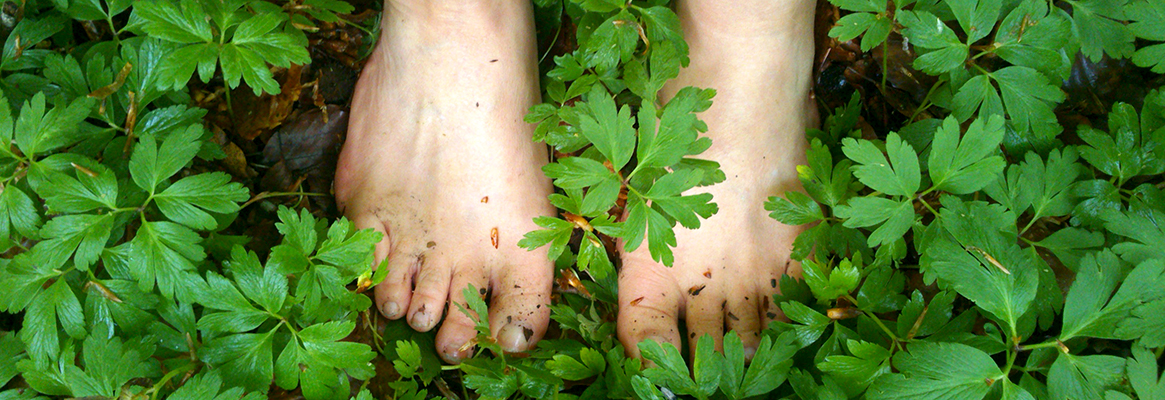
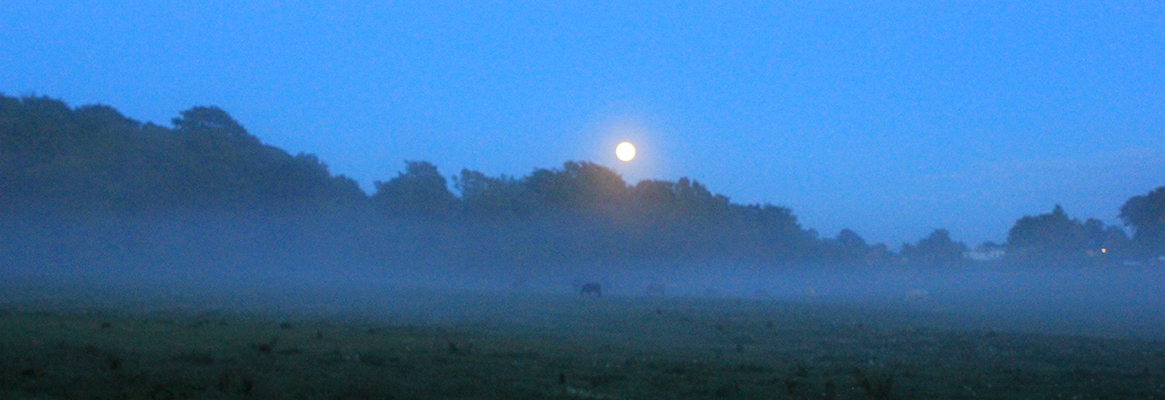
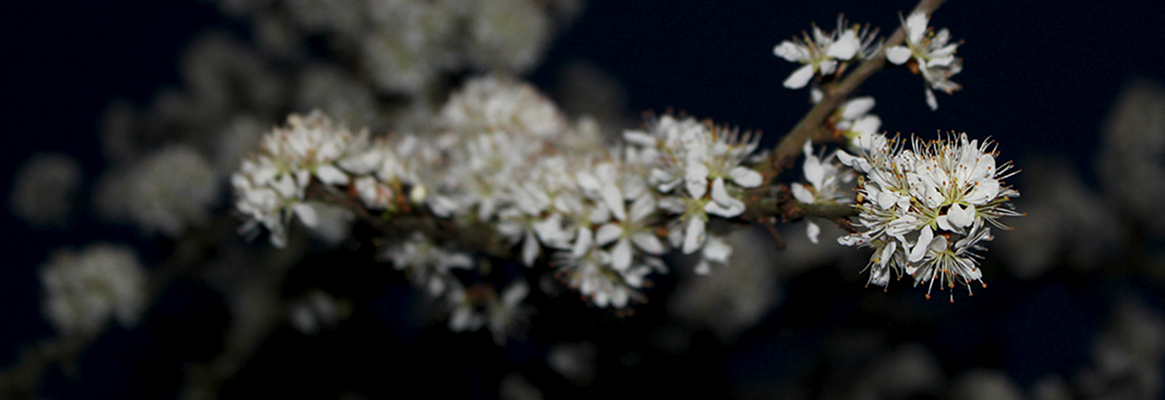

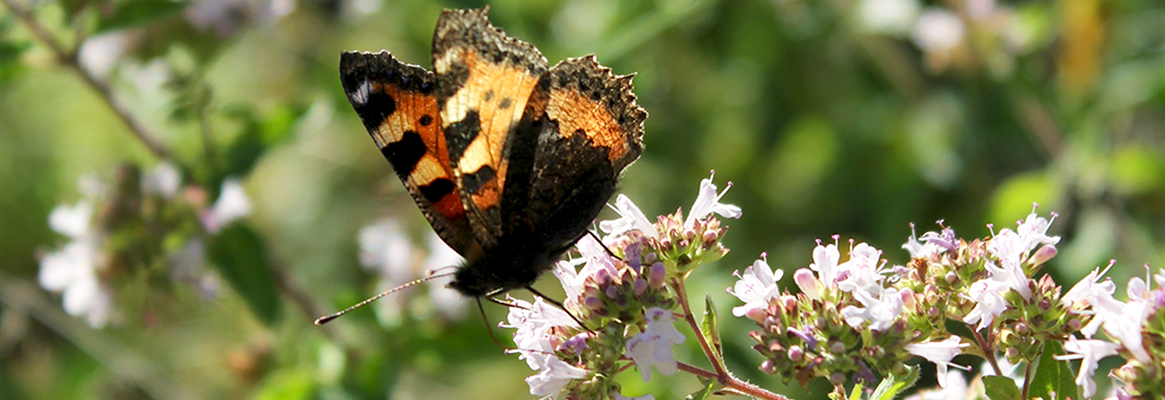
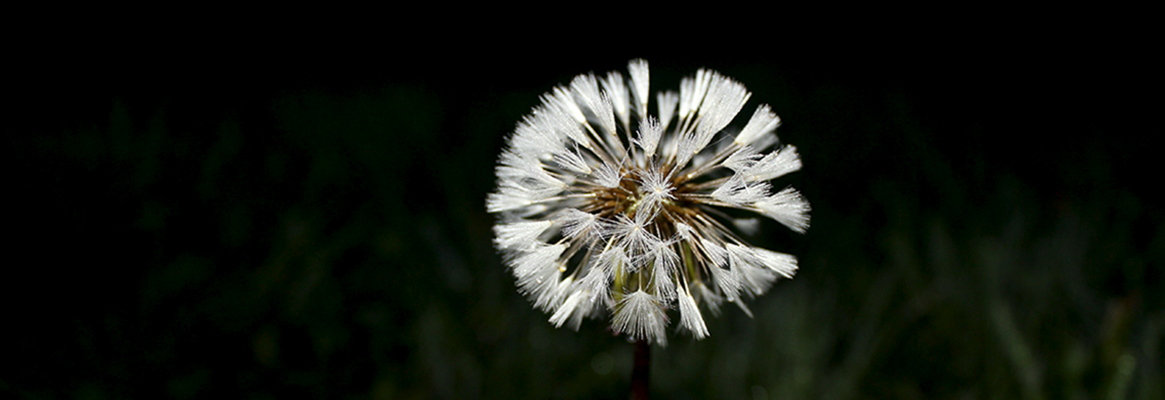
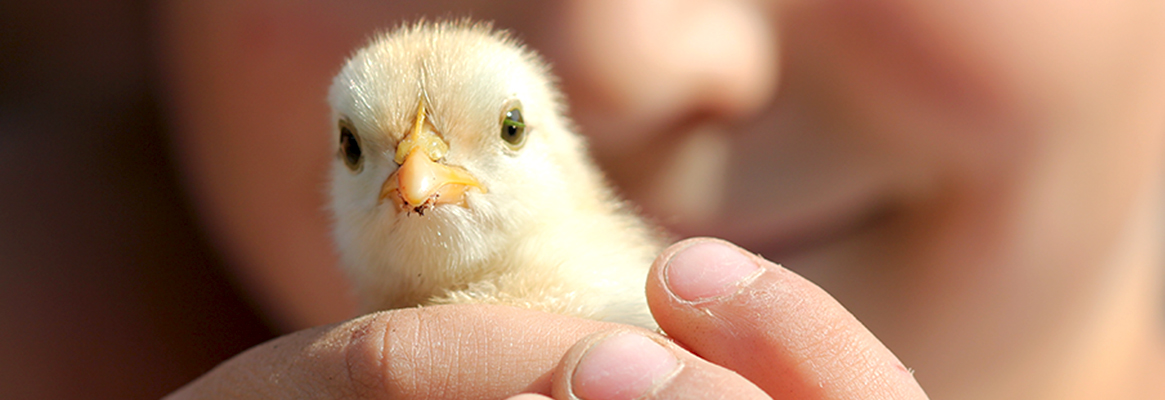
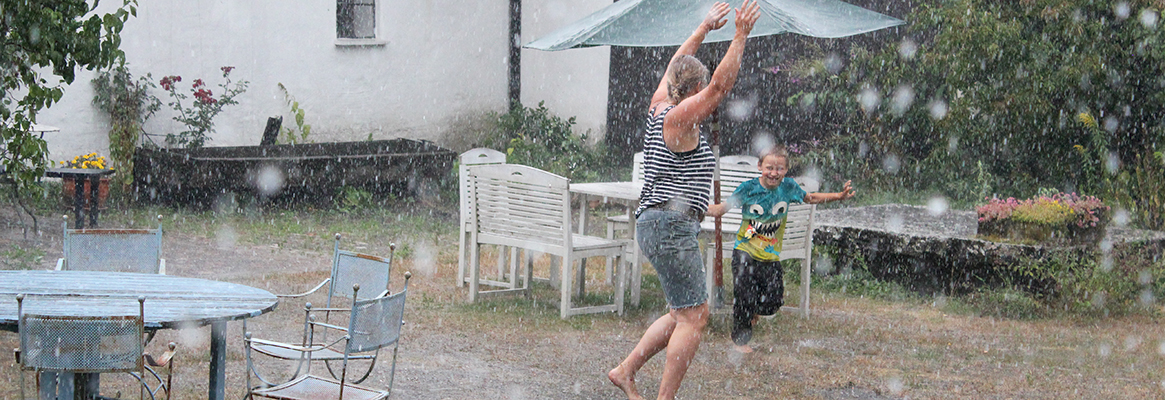
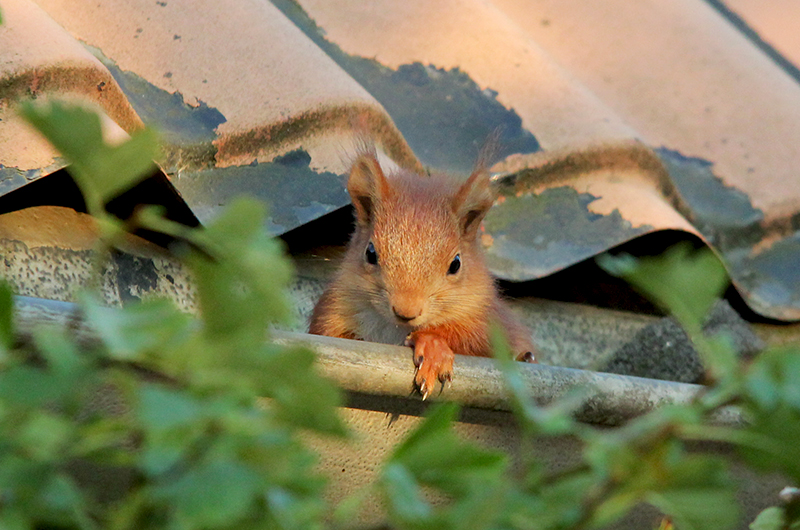 Are you looking for another way to do psychotherapy than to sit slightly opposite or side-by-side with a therapist, indoors, mostly talking? I offer psychotherapy with an ecological and integrative approach (incorporating other modalities such as mindfulness, expressive arts, movement-based interventions). In person, or online.
Are you looking for another way to do psychotherapy than to sit slightly opposite or side-by-side with a therapist, indoors, mostly talking? I offer psychotherapy with an ecological and integrative approach (incorporating other modalities such as mindfulness, expressive arts, movement-based interventions). In person, or online. 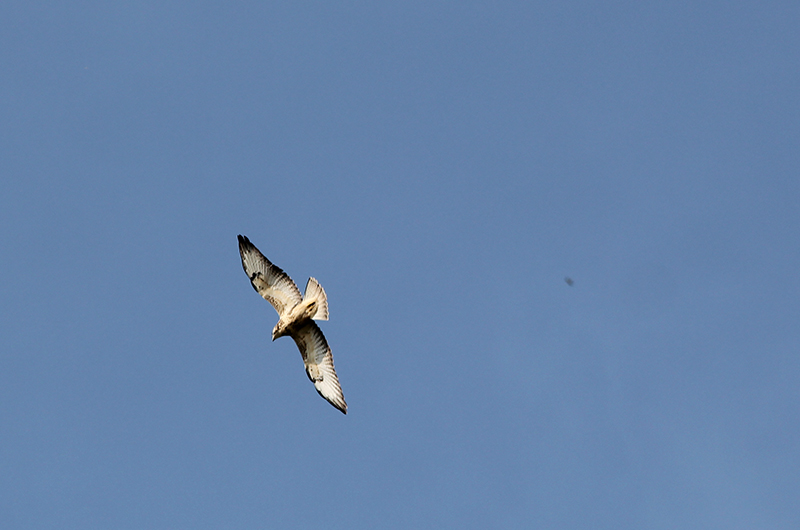 Are you looking for a growth tool that is not psychotherapy, but still can take you deeper within yourself, to listen to and to support yourself. To practice self-awareness, self-compassion, resourcing, and grounding? Then Eco-Mindfulness and "Wild-at-Heart-ness" could be for you.
Are you looking for a growth tool that is not psychotherapy, but still can take you deeper within yourself, to listen to and to support yourself. To practice self-awareness, self-compassion, resourcing, and grounding? Then Eco-Mindfulness and "Wild-at-Heart-ness" could be for you.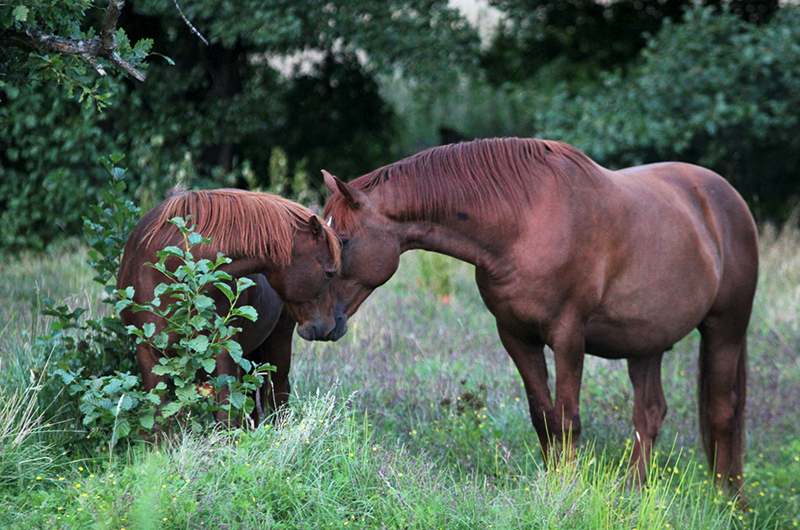 Are you looking for psychotherapy that is more equal? Where we look at power dynamics in your life? And has relationality at its core? In Peer Psychotherapy we work with both psychotherpeutic and intentional peer support tools.
Are you looking for psychotherapy that is more equal? Where we look at power dynamics in your life? And has relationality at its core? In Peer Psychotherapy we work with both psychotherpeutic and intentional peer support tools.